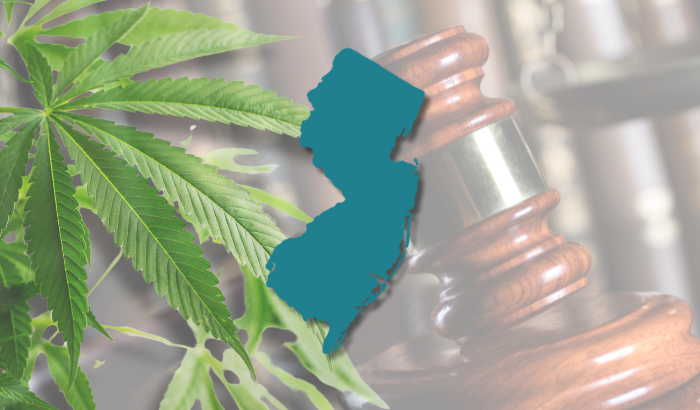
Hemp businesses have sued the state, alleging the law effectively criminalizes hemp despite it being legal at the federal level
New Jersey is arguing that its new law restricting the sale of hemp products is a legitimate response to a “public health crisis” caused by items with intoxicating hemp flooding the market, and it wants a judge to toss a lawsuit aimed at blocking the law.
In the 42-page filing, the state rejects claims lodged by hemp businesses that the state’s law violates the 2018 federal Farm Bill, which legalized hemp farming and distribution. The federal law was written to allow for local regulations like New Jersey’s new hemp law, the state’s attorneys argue in the new filing.
“Congress, federal agencies, and many states have thus been trying to implement policies and laws to address the 2018 Farm Bill’s unintended effect of permitting products that are essentially as intoxicating as marijuana to flood the national market and endanger the health and safety of people in recent years,” the filing says.
The new filing comes four months after the Legislature passed a bill regulating the sale of intoxicating hemp products in New Jersey, a response to years of hearing concerns that children were easily buying hemp products.
Gov. Phil Murphy signed the bill despite expressing some reservations about it and suggesting the Legislature may need to work on a cleanup bill to address confusing and vague provisions in the new law. When Murphy signed it last month, he said the “status quo poses an immediate risk to health and safety, as these unregulated intoxicating hemp products are widely available to minors.”
Under the law, businesses will soon be banned from selling hemp products unless they have a cannabis license. The state Cannabis Regulatory Commission will oversee the sale of intoxicating hemp products and come up with new rules to regulate the market. Lawmakers hope this will stop kids from getting their hands on sketchy hemp products with thousands of milligrams of THC sold at corner stores and bodegas.
Hemp businesses promptly sued the state, alleging the law effectively criminalizes hemp despite it being legal at the federal level. The judge expedited the matter, as the Oct. 12 deadline for businesses to remove all hemp products from their shelves looms. Hemp businesses say thousands stand to lose their jobs if the law is not blocked.
Hemp has become a multi-billion dollar market in the country, but it was an “unintended market” for products containing chemically altered cannabinoids, like delta-8 and delta-10, New Jersey attorneys argue in their new filing in support of the law.
With limited regulation for these products, the filing says, poisonings and contaminated products involving hemp have risen drastically. In 2023, 11% of high school seniors reported using delta-8 THC, according to the National Institute on Drug Abuse.
Hemp businesses have argued that the law is filled with confusing and vague language that would make it difficult for them to know whether they are breaking the law — they specifically criticized the law for using terms like “cannabis sativa L.” and “total tetrahydrocannabinol” without defining them — and they cited Murphy’s own complaints that some of the bill’s provisions are not clear. But attorneys for the state argue that industry players should be familiar with the law’s language and have experience in interpreting other statutes with highly scientific terms, like the 2018 Farm Bill.
The state says there’s no constitutional requirement for every word in a law to be defined. And it questions how hemp businesses could claim the terms “cannabis sativa L.” and “total tetrahydrocannabinol” are confusing to hemp business owners — those terms refer to the cannabis plant and THC, the psychoactive compound in marijuana.
“They cannot seriously claim they lack fair notice of what those common industry terms mean. When a statute regulating an industry uses a word that has a meaning ordinarily known to those in the industry, a court should give the statutory term that meaning,” Yang wrote.
Representatives for the plaintiffs did not respond to requests for comment. They are expected to file a brief responding to the state’s motion Friday.
This article was republished from the New Jersey Monitor under Creative Commons license CC BY-NC-ND 4.0. You can read the original version here.
























